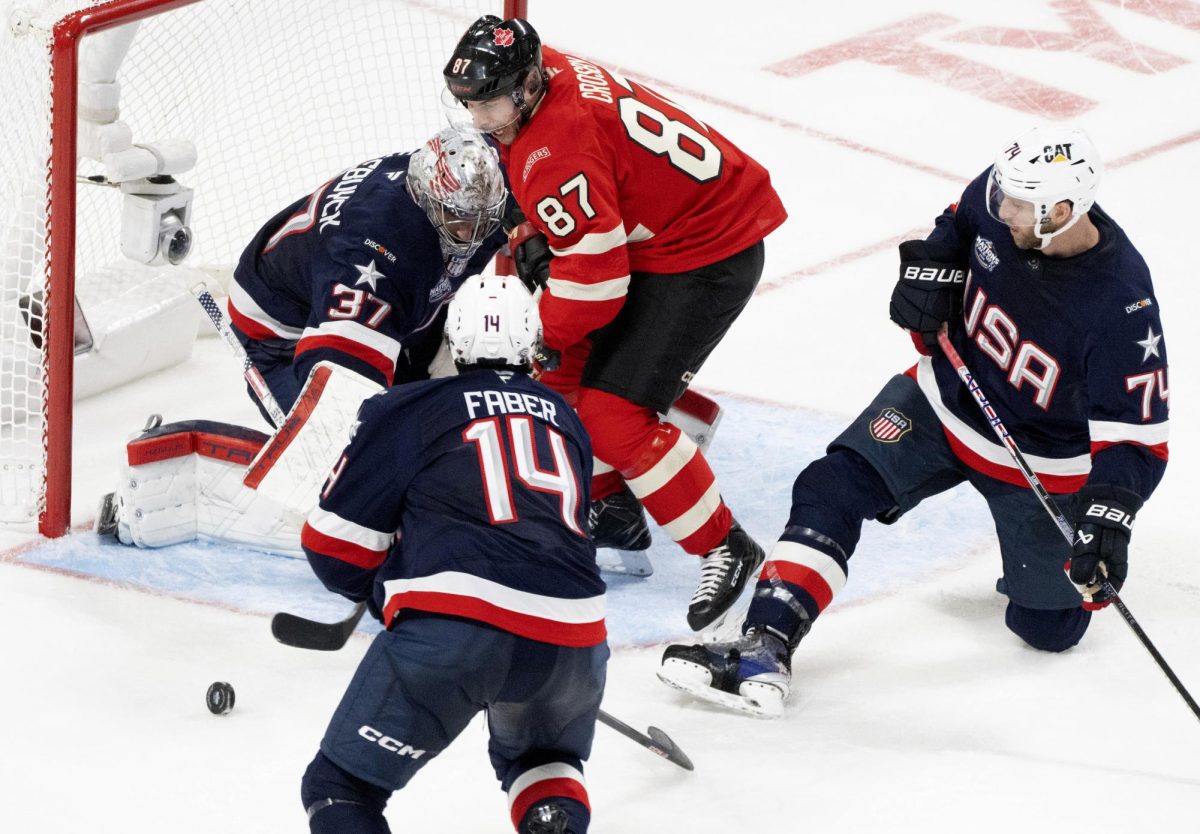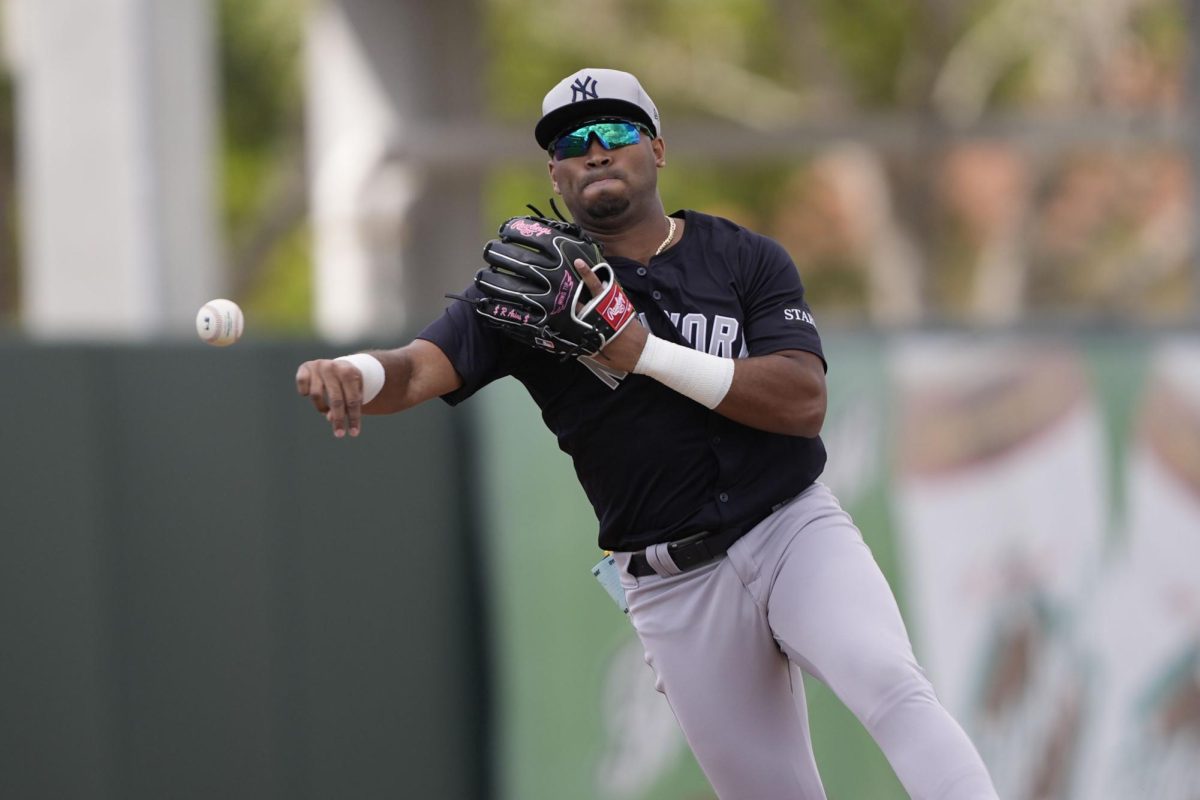While many sports leagues are struggling to maintain fan and player engagement in All-Star games, the NHL seems to have hit the nail on the head with their new 4 Nations Face-Off tournament. The play was high-level and competitive as players fought for national pride, breaking viewership records, not just for an NHL All-Star game, but for hockey in general. According to Sports Media Watch, the final game between the United States and Canada (4.4 million viewers on average) trailed Game Seven of last years’ Stanley Cup Final between the Edmonton Oilers and Florida Panthers (7.67 million viewers on average) as the most watched NHL-affiliated game in the past two years.
How did the idea for this event come about? Why were the countries that participated chosen? And what were the biggest headlines from this first-ever event?
NHL Deputy Commissioner Bill Daly and NHLPA Director of International Growth and Strategy Rob Zepp said the idea for the 4 Nations Face-Off was born in a boardroom about 18 months ago. They originally tried to implement the tournament in February of the 2023-24 season but faced resistance due to the extremely short notice. So, NHL Commissioner Gary Bettman announced that the first Face-Off would take place in February 2025 after the 2024 NHL All-Star Game.
The first step in executing the tournament was determining which countries would participate. Since the event was affiliated with the NHL, one of the main conditions necessary for a country to participate was a sufficient number of NHL players to field a national roster. The league wanted to avoid non-NHL players participating, which eliminated countries like Germany and players like Leon Draisaitl – one of hockey’s biggest stars – from participating. Despite having enough players, Russia wasn’t asked to participate due to the current conflict in Ukraine. In the end, the league chose the U.S., Canada, Finland and Sweden to compete, in the hope that those countries would bring as much NHL star power as possible. That is exactly what happened.
The first matchup between the U.S. and Canada took place in Montreal’s Bell Centre, where Canadian fans booed the pregame Star Spangled Banner. Chaos erupted soon after, when three fights broke out between opposing players within the first nine seconds of game time. Siblings and two of the biggest names on the U.S. team, Matthew and Brady Tkachuk, as well as another superstar J.T. Miller, all dropped their gloves and picked fights against players on Team Canada within the short time frame.
“We want to show it’s our time,” Matthew Tkachuk said when asked about the first fight. “We had to send a message […] We’re here in Montreal Saturday night. We want it to be our time, and that’s a message sent right from the get-go.”
“It was probably 10 years of no international hockey exhaled in a minute and a half,” Canadian head coach Jon Cooper said.
The U.S. went on to win the game 3-1, securing their spot in the tournament’s finale.
Prior to their rematch against Canada in the final, U.S. White House Press Secretary Karoline Leavitt told the media that President Trump had spoken with the team and then jokingly stated that they were looking forward to the U.S. defeating their soon-to-be 51st state, Canada.
The game itself did not disappoint. Held inside a packed TD Gardens Arena in Boston, the U.S. and Canada traded goals across the first and second periods, and the score was 2-2 when the horn sounded at the end of the third period. Eight minutes and 10 seconds into overtime, Canada got the puck off of a face-off win in their offensive zone, and assistant captain Connor McDavid cleanly tucked it away into the top left corner of the U.S. net, ending the game and sucking the air out of the arena.
Following Canada’s thriller OT win, Canadian Prime Minister Justin Trudeau took to social media site X.
“You can’t take our country — and you can’t take our game,” Trudeau wrote.
This squabble between the nations’ leaders emphasizes what sets this game apart from all other All-Star games: the national pride that was clear not only amongst the players but also amongst the nations’ leaders and citizens.
Trudeau continued to call hockey Canada’s game, which has traditionally been held true. After all, the modern game of hockey was created in Nova Scotia, Canada, they have most gold medals in men’s ice hockey at the Olympics with nine and they have won two-thirds of the Hockey World Cup Tournaments ever played. Many fans believed the 4 Nations Face-Off championship results would show whether hockey was still Canada’s game or if it now belonged to the United States. Oilers superstar McDavid’s legacy-shaping overtime golden goal for Team Canada certainly answered this question for the time being.
McDavid’s overtime goal shares similarities with Sidney Crosby’s overtime winner from the 2010 Vancouver Winter Olympics. Both goals were game winners in championship games against the U.S., which solidified Canada’s spot at the top of the hockey world.
NHL players haven’t played on the international stage since the 2016 World Cup of Hockey. They also haven’t participated in the Olympics since the 2014 Sochi games. The 4 Nations Face-Off has completely changed the landscape for the future of international hockey, as NHL players now plan to return to international play for the 2026 Milan Winter Olympic Games and the 2028 World Cup of Hockey.
















